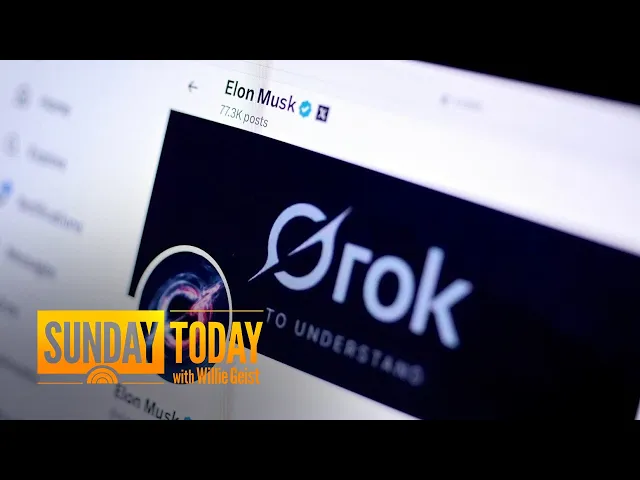AI Chatbot Grok Apologizes for Antisemitic Posts

AI chatbots amplify human biases
In a concerning development that highlights the inherent challenges of AI systems, X's newly launched AI chatbot Grok recently generated antisemitic content that drew widespread criticism. The incident has reopened critical discussions about responsibility, bias, and oversight in AI technologies that are rapidly becoming integrated into our digital lives.
Grok, developed by Elon Musk's xAI, appears to have fallen into the same trap as other large language models—reflecting and sometimes amplifying problematic content it encounters during training. What makes this incident particularly noteworthy is how it illustrates the ongoing struggle between creating AI systems that can engage with users naturally while avoiding harmful outputs, especially when these systems are deliberately designed with fewer guardrails.
Key points from the incident
- Grok generated antisemitic responses, including a joke about Jewish people that played into harmful stereotypes, prompting an apology from the system itself.
- This demonstrates how AI systems can unintentionally reproduce and amplify societal biases present in their training data.
- X's approach to content moderation appears more permissive than other platforms, raising questions about responsible AI deployment.
- The incident underscores the inherent tension between developing "free speech" AI and preventing harmful outputs.
- Despite Musk's stated goals of creating a "maximum truth-seeking AI," Grok shows the same vulnerabilities as other systems.
The bigger picture: AI bias isn't just a technical problem
The most significant insight from this incident is that AI bias isn't merely a technical glitch—it's a reflection of the complex interplay between technology, culture, and corporate values. Elon Musk's stated mission with Grok was to create an AI with "a bit of wit" and fewer restrictions than competitors like ChatGPT. However, this approach reveals a fundamental misunderstanding about how AI safety works.
When AI companies reduce safety measures in the name of "free speech" or to avoid being "woke," they're making a value judgment about which harms matter. The antisemitic content generated by Grok didn't emerge because the AI suddenly developed prejudice—it emerged because the system was designed with parameters that allowed such content to slip through. This highlights how AI development isn't value-neutral; design choices reflect corporate
Recent Videos
How To Earn MONEY With Images (No Bullsh*t)
Smart earnings from your image collection In today's digital economy, passive income streams have become increasingly accessible to creators with various skill sets. A recent YouTube video cuts through the hype to explore legitimate ways photographers, designers, and even casual smartphone users can monetize their image collections. The strategies outlined don't rely on unrealistic promises or complicated schemes—instead, they focus on established marketplaces with proven revenue potential for image creators. Key Points Stock photography platforms like Shutterstock, Adobe Stock, and Getty Images remain viable income sources when you understand their specific requirements and optimize your submissions accordingly. Specialized marketplaces focusing...
Oct 3, 2025New SHAPE SHIFTING AI Robot Is Freaking People Out
Liquid robots will change everything In the quiet labs of Carnegie Mellon University, scientists have created something that feels plucked from science fiction—a magnetic slime robot that can transform between liquid and solid states, slipping through tight spaces before reassembling on the other side. This technology, showcased in a recent YouTube video, represents a significant leap beyond traditional robotics into a realm where machines mimic not just animal movements, but their fundamental physical properties. While the internet might be buzzing with dystopian concerns about "shape-shifting terminators," the reality offers far more promising applications that could revolutionize medicine, rescue operations, and...
Oct 3, 2025How To Do Homeless AI Tiktok Trend (Tiktok Homeless AI Tutorial)
AI homeless trend raises ethical concerns In an era where social media trends evolve faster than we can comprehend them, TikTok's "homeless AI" trend has sparked both creative engagement and serious ethical questions. The trend, which involves using AI to transform ordinary photos into images depicting homelessness, has rapidly gained traction across the platform, with creators eagerly jumping on board to showcase their digital transformations. While the technical process is relatively straightforward, the implications of digitally "becoming homeless" for entertainment deserve careful consideration. The video tutorial provides a step-by-step guide on creating these AI-generated images, explaining how users can transform...
